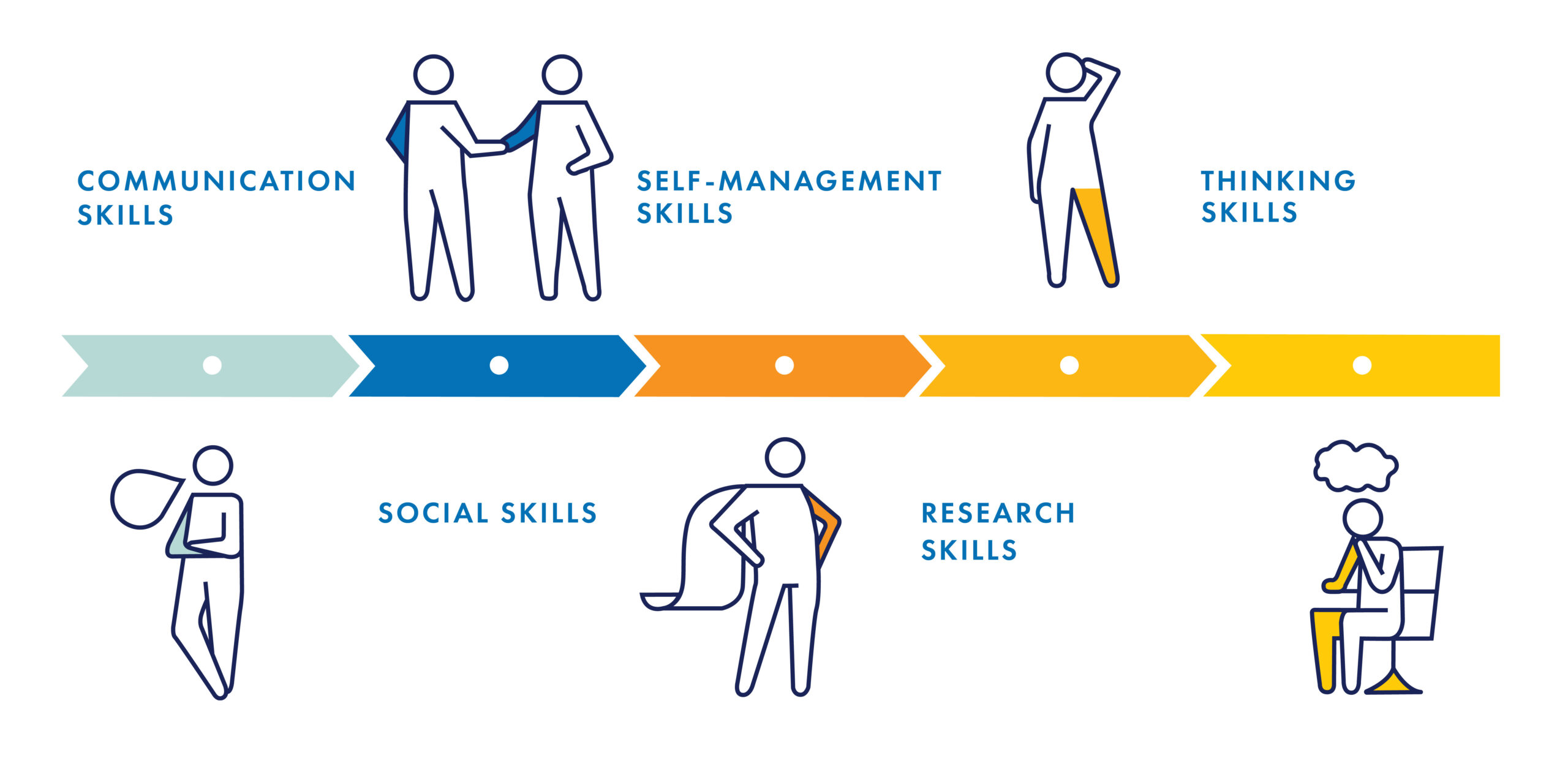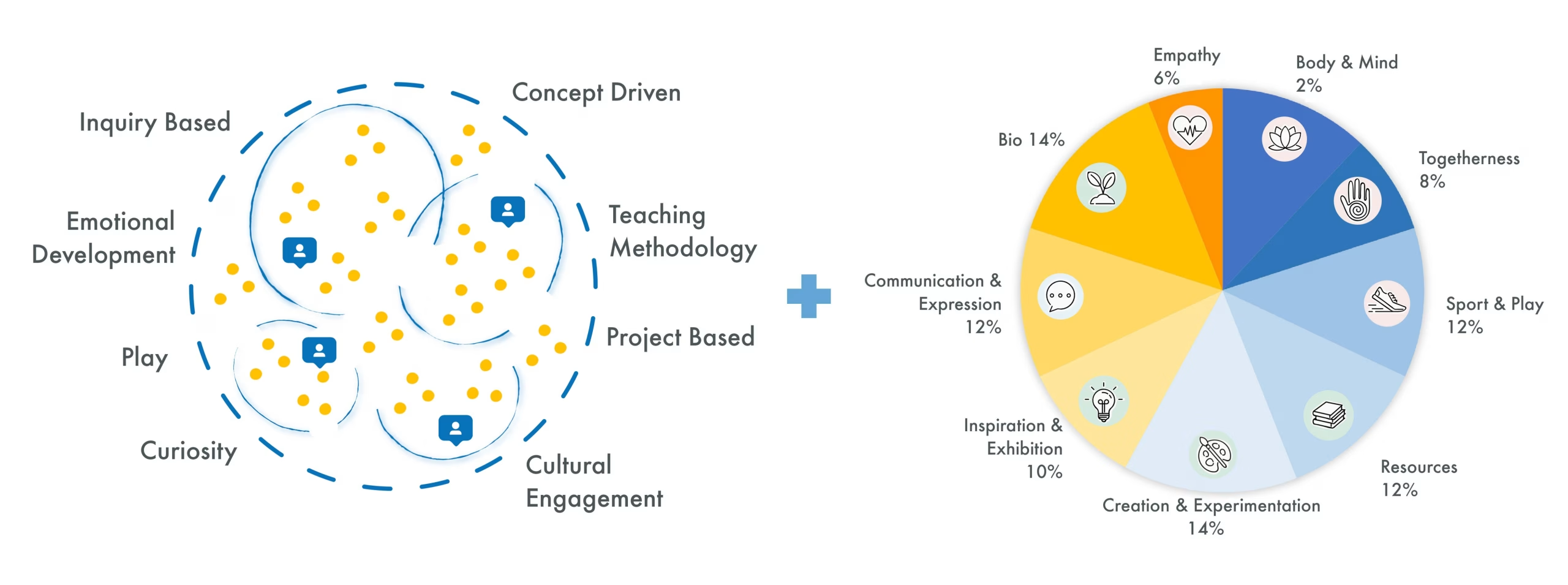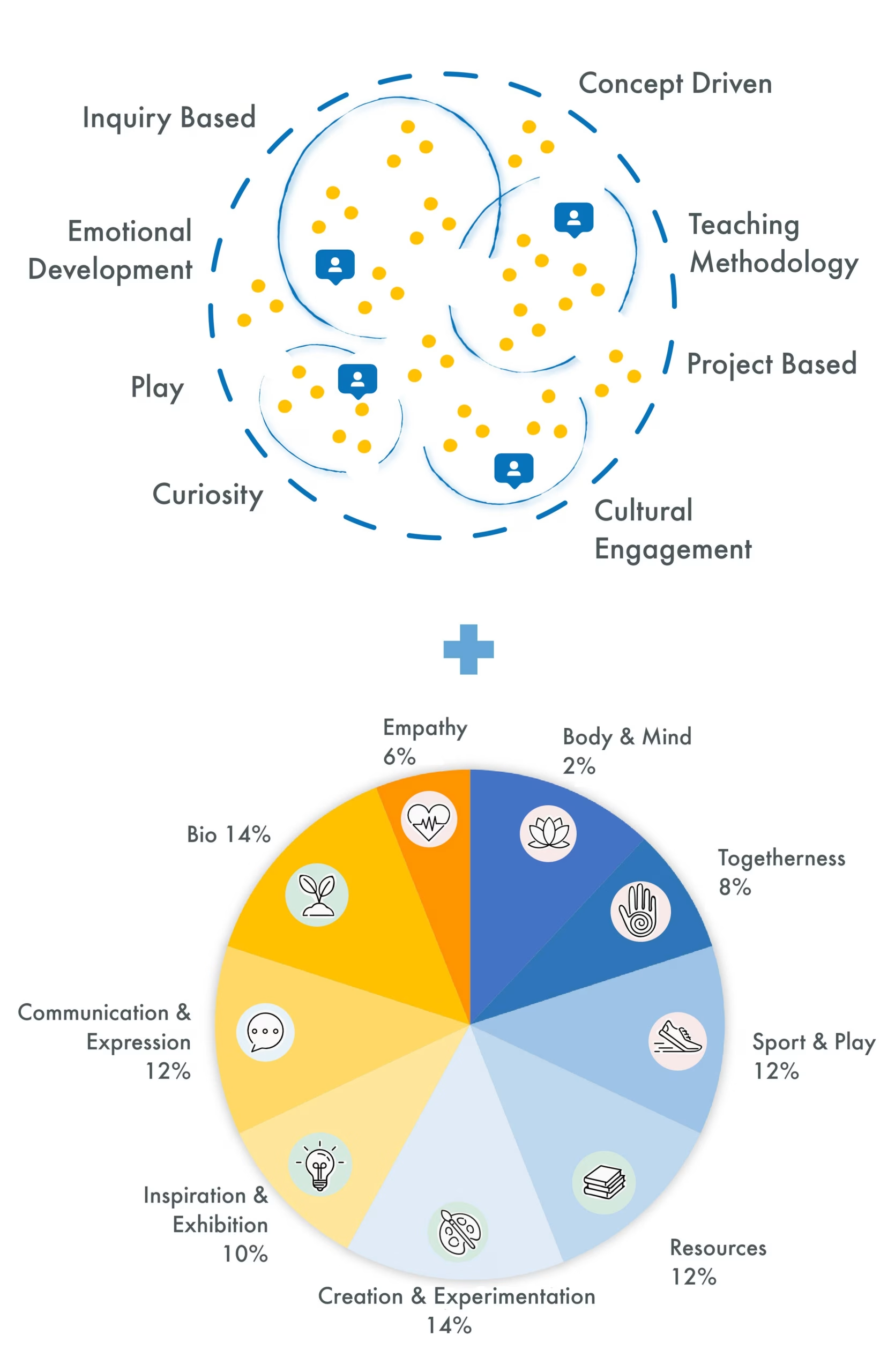6 to 11 years old
Primary Years Programme

Primary Years Programme
The Foundation of the Programme
The Primary Years Programme (PYP) is a stage of the International Baccalaureate (IB) designed for students aged 6 to 12. It emphasises whole-child development, supporting learning not only in the classroom but also through a variety of real-world environments. The programme addresses academic, social, physical, emotional, and cultural needs, providing a balanced framework for growth.
At International Sharing School – Madeira, we deliver a programme that blends knowledge acquisition, skill development, conceptual understanding, and positive attitudes, guiding students toward thoughtful and responsible action. All of this takes place within a school community grounded in care, hospitality, and multicultural values.
The Advantages of the PYP
Core Components of the Primary Years Programme
Within the Primary Years Programme, students build understanding across key areas: concepts, essential skills (including thinking, communication, social, research, and self-management), attitudes, knowledge, and meaningful actions.
Who we are, Where we are in place and time, How do we express ourselves, How the world works, Sharing the planet. How we organise ourselves.
Form, Function, Causation, Change, Connection, Perspective and Responsibility.
Social skills, Research skills, Thinking skills, Communication skills, Self-Management skills.
Integrity, Tolerance, Confidence, Appreciation, Cooperation, Empathy, Commitment, Independence, Respect, Creativity, Enthusiasm, Curiosity.
Participation (as individuals or in a group), Advocacy (action to support), Social justice, Social entrepreneurship, Lifestyle choice (consumption and impact).
“Nurturing lifelong love of learning and developing essential skills for this ever-changing world.”
Through inquiry-based learning, our students in the Primary Years Programme investigate real-world issues and explore concepts across a range of subjects. This approach fosters a lifelong love of learning while helping them develop essential skills needed for success in an ever-changing world.
At ISS, our goal is to create an engaging, supportive, and inclusive environment where students are empowered to ask questions, solve problems, and reflect on their learning journeys. Through collaboration, creativity, and reflection, they become active participants in shaping their education and the world around them.
– Jenie Noite, Coordinator of Primary Years Programme

The IB Approach
Exploring Learning Through Transdisciplinary Themes
In the Primary Years Programme, transdisciplinary themes serve as the starting point for students’ inquiries. Within the context of each theme, learners investigate central ideas and integrate knowledge across subjects. These themes encourage collaboration and meaningful dialogue, helping students develop a deeper understanding of themselves, their community, and the wider world.
Who we are
The nature of the self, Beliefs and values, Personal, physical, mental, social and spiritual health, Human relationships, Rights and responsibilities, What it means to be human.
Where we are
Orientation in place and time, Personal histories, The discoveries, explorations and migrations of humankind, The relationships between individuals and civilizations from local and global perspectives.
How we express
The ways in which we discover and express ideas, feelings, nature, culture, beliefs and values, The ways in which we reflect on, extend and enjoy our creativity, Our appreciation of the aesthetic.
How the world works
The natural world and its laws, The interaction between the natural world and human society, How humans understand scientific principles, The impact of technological advances on society.
How we organise
The interconnectedness of human-made systems and communities, The structure and function of organizations, Economic activities and their impact on humanity and the environment.
Sharing the planet
Rights and responsibilities in the struggle to share finite resources with other people and living beings, Access to equal opportunities, Peace and conflict resolution.

Our Teaching Approach in the Primary Years Programme
The Learning System at ISS Madeira
Inquiry-Based
We believe students learn most effectively through purposeful inquiry. They are encouraged to ask questions, explore, and investigate topics that spark their curiosity.
Collaborative
Learning is a social experience. Students engage in group work, discussions, and shared projects to develop teamwork and communication skills.
Differentiated
The learner is at the centre of our curriculum. Teachers design activities to meet the individual needs of each student, supporting a variety of learning styles and abilities.
Concept-Driven
Students explore meaningful concepts that are relevant to their own lives, allowing them to connect classroom learning with real-world understanding.
How we guide Learners
Developing Approaches to Learning Skills
Approaches to Learning (ATL) in the Primary Years Programme form a core part of the IB Framework, complementing the learner profile, knowledge, conceptual understanding, and inquiry. These skills are based on the principle that learning how to learn is central to every student’s education.
Five interconnected skill categories help students of all ages become self-regulated learners who can ask thoughtful questions, set meaningful goals, and pursue their aspirations with determination. ATL also nurtures students’ sense of agency, encouraging them to view learning as an active, dynamic process (IBO 2017). In the Primary Years Programme, teachers adapt these skills to suit the developmental needs of early and primary learners.
Core Values at iss Madeira
Enhanced Learning Pathways
At ISS Madeira, students progress at their own pace, and traditional classroom settings can sometimes limit this flexibility. Our enhanced learning pathways allow students to tailor their learning journey while developing a range of essential skills along the way.
Multiculture
Communication & Expression
Students develop language skills and tools for effective communication, engage in cultural interaction, and participate in debates.
Inspiration & Presentation
Learners acquire language proficiency while expressing ideas through discussion, debate, and creative presentations.
Creation & Exploration
Hands-on activities encourage imagination, problem-solving, and practical skills, allowing students to create, construct, and experiment.
Care
Body & Mind
Students develop self-awareness, personal well-being, balance, and reflective practices to support growth and resilience.
Empathy
Learners cultivate understanding of others, practice emotional awareness, and embrace ethical responsibility in interactions.
Environment & Sustainability
Students learn to care for the world, engage with sustainable practices, and develop awareness and ecological responsibility.
Hospitality
Resources & Knowledge
Students develop reasoning and research skills while exploring libraries and curated learning collections.
Sports & Play
Physical activity promotes memory, teamwork, and personal empowerment, encouraging holistic development.
Togetherness
Learners strengthen social skills and build a sense of community, fostering connections within a supportive, family-like environment.
Primary Years Classrooms
Classrooms Designed for Collaboration
The Primary Years Programme comes to life through our thoughtfully designed classrooms, which promote collaboration and connections across subjects. Rather than conforming to a traditional classroom layout, our spaces are structured around the curriculum. Teachers act as facilitators, while students take an active role as agents of their own learning. These open, flexible environments encourage inquiry, creativity, and group discussions.
Classrooms are dynamic and interactive: students take initiative, support one another, access resources independently, and work in different areas as needed. Multiple groups may engage in various projects simultaneously. A rich array of materials stimulates learning, and outcomes are displayed throughout the classroom, corridors, and wider school to celebrate progress and achievements.


